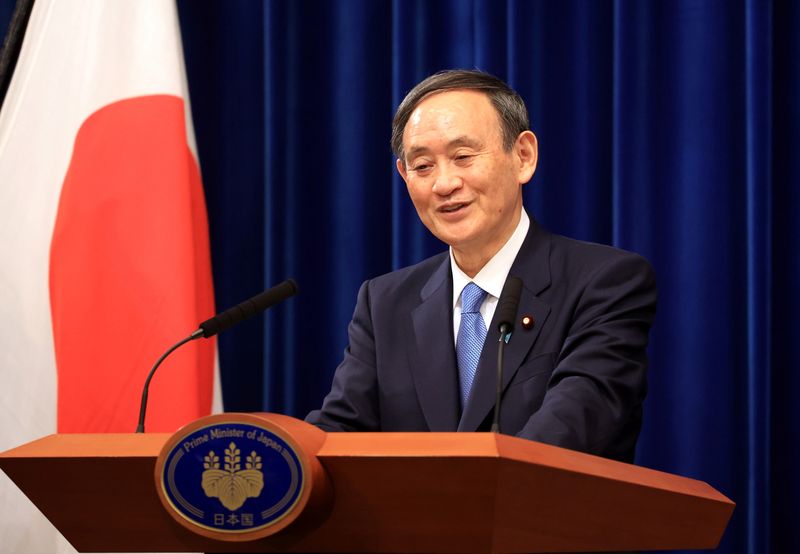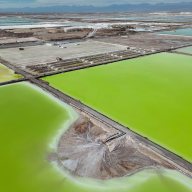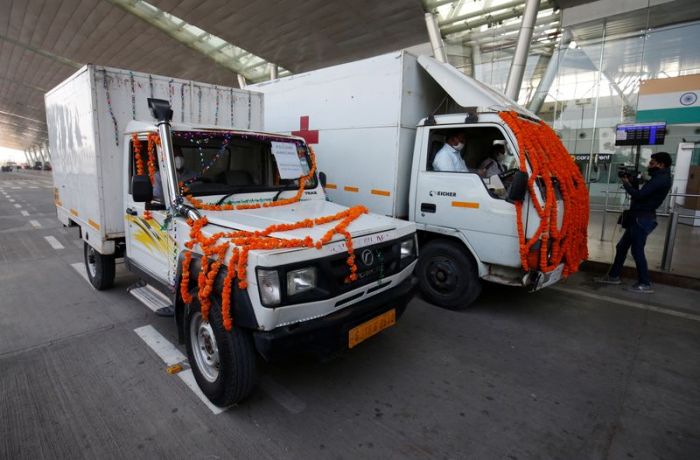TOKYO (Reuters) – Japanese Prime Minister Yoshihide Suga said he is considering extending a state of emergency further beyond Tokyo to include Aichi prefecture, home to Toyota Motor Corp, and other central and western areas to curb the spread of COVID-19.
“We are gauging the situation right now,” he told the daily Asahi newspaper.
A state of emergency gives local authorities the legal basis to place restrictions on residents’ movements and businesses, but under Japanese law the power to declare one rests with the prime minister.
Responding to pressure from Tokyo and three neighbouring prefectures in the east of Japan’s main island of Honshu, Suga last week declared a one-month state of emergency for that region until Feb. 7.
But the number of coronavirus cases has also climbed in the west, prompting Osaka, Kyoto and Hyogo to seek a state of emergency. On Tuesday, the central prefectures of Aichi and Gifu also asked the government to be included in the state of emergency.
The government is now finalising plans to do so as early as Wednesday, Kyodo news agency reported, citing government sources.
Adding those five prefectures would mean about half of Japan’s population of 126 million people living under emergency restrictions.
Japan’s top government spokesman, Chief Cabinet Secretary Katsunobu Kato, did not confirm the report, saying only that the government would consider the measures for a “swift response” for the Osaka area.
RESPONSE CRITICISED
Suga has been criticised for what many have called a slow, confusing and piecemeal response to the pandemic as infections hover near record highs.
About 79% of respondents in a Kyodo survey published on Sunday said his decision to declare the emergency for Tokyo came too late.
Daily cases hit a high of 7,882 last Friday, bringing the overall tally to nearly 300,000, public broadcaster NHK said.
In a bid to help the struggling services sector, the government had offered generous subsidies to encourage citizens to travel domestically and dine out, only to pause the effort late last year as virus cases soared.
Now, it is asking residents of the Tokyo area to stay indoors as much as possible and urging bars and restaurants to close by 8 p.m.
“Please refrain from going out, not only at night, but also during the day,” Economy Minister Yasutoshi Nishimura said on Twitter, adding that daytime outings over the three-day weekend had not fallen, despite the emergency.
Like many nations, Japan is struggling to balance efforts to restrain the virus against damage to its economy, which is the world’s third-largest.
With inbound tourism on hold, the hotel industry has borne the brunt of the pain. Last year, 118 hotels went under, accounting for about 47% of total bankruptcies, a Tokyo Shoko Research survey showed.
Finance Minister Taro Aso said the government would offer one-off payouts of up to 400,000 yen ($3,835) to businesses supporting restaurants and bars that shorten hours, such as suppliers of disposable chopsticks and wet towels.
Maximum compensation for the restaurants themselves will rise by 50%, Suga has said.
The latest emergency measures would not require already-compiled state budgets to be reshaped, Aso said.
(Reporting by Eimi Yamamitsu, Tetsushi Kajimoto, Chris Gallagher, Leika Kihara and Chang-Ran Kim; Writing by Chang-Ran Kim; Editing by Lincoln Feast, Gerry Doyle and Alex Richardson)
















